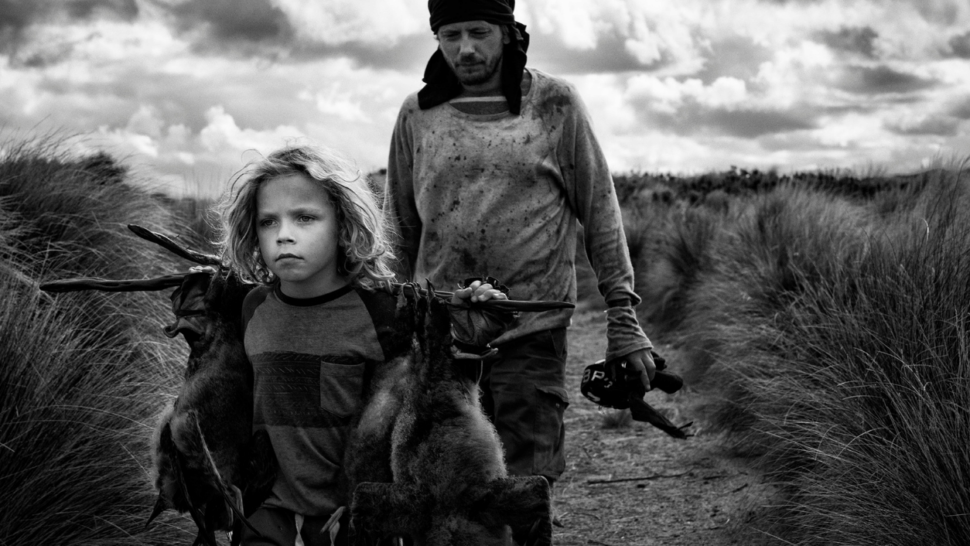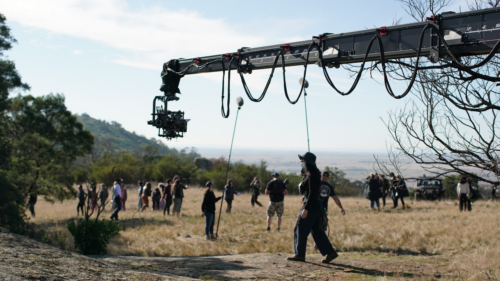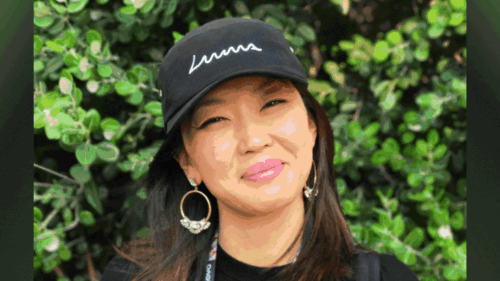/News 14.03.23
FIRST NATIONS SPOTLIGHT: PAKANA WRITER ADAM THOMPSON, LEADING FIRST NATIONS VOICES IN TASMANIA’S FILM INDUSTRY
Adam Thompson is a creative talent on the rise, fast becoming one of the most sought-after writers and First Nations consultants in Tasmania’s film industry. The pakana (Tasmanian Aboriginal) writer, who hails from Launceston in Northern Tasmania (Lutruwita), recently formed the first Tasmanian Aboriginal production company, kutikina Productions, alongside Nathan Maynard, the Trawlwoolway (North-East Tasmanian) writer.
Adam says the objective behind the partnership is to become a leading First Nations voice within the screen sector, delivering high-impact content of exceptional quality that leads to genuine screen representation of First Nations people and stories.
“It’s important for blackfellas – particularly our kids – to see themselves represented in books and on screen, in the mainstream especially.”
“For too long, we have been the subject of writing and screen: written about, talked about, portrayed as being in the past, not the vibrant, living culture that we are.”

Kutikina Productions was born from a desire to see First Nations stories told authentically by First Nations filmmakers.
“Nathan and I have known each other for a long time, and we both love storytelling,” Adam said. “We got talking about how fed up we were getting with being bombarded with requests from non-Aboriginal people wanting to create Tasmanian Aboriginal screen content – and wanting us to endorse it.”
“Nathan and I share a lot of values, one of which is that we believe it’s up to us to tell our own stories – not white people telling them for us – which is how it’s been, historically.”
Screen Tasmania has thrown its support behind the emerging production company, supporting both creatives with attachments to experienced creatives and production teams, and providing funding for the development of the company’s first feature film Dog Island – a drama telling the story of a 13-year-old Pakana boy, who takes on the responsibilities of an adult when his father drowns on a remote muttonbird island in Bass Strait.
Screen Tasmania has also supported the development of the short-form series Moonbird, a co-production with Rummin Productions, which is part of the SBS/Screen Australia initiative ‘Digital Originals’.

For Adam, the transition into screenwriting is still quite new. An accomplished and award-winning writer for print, his debut collection of short stories Born into This offers a compelling insight into life as Tasmanian Aboriginal people in a modern landscape.
Adam says it was the publication of this collection that set the wheels in motion for a career as a writer.
“That’s when it first felt real,” he said. “I still didn’t think at that point it would turn into a career. It was an experience I had in Queenstown, through the Unconformity Artist in Residence Program, that made me decide to pursue a life of creativity. I took the plunge and resigned from my day job after that.
“One thing I’ve discovered on my creative journey is that if you take opportunities as they are presented, provided they are in line with your values, the world opens up for you.”

“I was contacted by the producers of the children’s animation, Little J and Big Cuz, to workshop some ideas for the show. I engaged in that opportunity and ended up writing three episodes for the show and writing a Little J and Big Cuz book.”
Adam has since found himself immersed in the screenwriting experience and the opportunity to take his stories to new audiences.
“I love screen, always have. I have a desire to tell stories, to get them out into the world. Screen reaches a large audience, so it just made sense to branch in that direction.”
“I’ve found screenwriting to be a lot more collaborative. There are a lot more people having a say in the work: producers, directors, script editors, other authors, funders, regulators, et cetera.
“And the format is different, of course. The way the story is crafted is different. Obviously, you are creating something that will be presented visually, as opposed to a short story or novel, which stays as text. But it’s exciting when you see your work on the screen, and people enjoy watching it.”
Adam says the future is looking bright for kutikina.
“We have several projects in development and production, with more on the horizon. As passionate creatives, Nathan and I will never leave our first loves – theatre and books – but look forward to making our mark in screen.”










